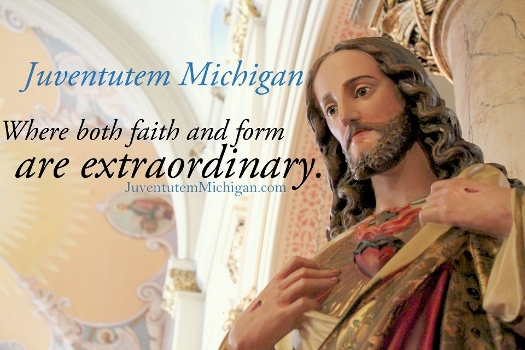Rorate note: A clear attempt to minimize the importance of this decree is taking place here and there in the blogosphere, as expected. We are being told that this isn't really something to worry about; that this is just a particular situation, limited to a particular religious institution, and has nothing to do with how Pope Francis views Summorum.This is a much longer post with added updates. Read more >>
Against these manifestations of the spirit of denial that we have come to know so well since February 28 of this year, we raise the following points.
1) First, the Franciscan Friars of the Immaculate are not just a small religious Order or congregation occupying a tiny niche of the Traditional Catholic world; with more than 130 priests, they are the second largest canonically-regular religious congregation or society among those that primarily or de facto exclusively offer the Traditional Latin Mass. (The FSSP is the largest.) The family of female monasteries and convents under the spiritual care of the FFI have no other parallel in the Traditional Catholic world outside the SSPX. Anything that restricts the ability of the FFI to offer the Traditional Latin Mass will of necessity be deeply felt by the Traditional Catholic world.
2) One justification now being raised is that the FFI's application of Summorum Pontificum had caused discord in many communities and that the Traditional Latin Mass was "imposed" brutally on priests who did not want it. On the contrary, we in Rorate, who have been closely observing the FFI since 2008, can affirm that the opposite is the case: Summorum was applied in a very gradual manner by the FFI, the Novus Ordo was never forbidden in their houses and sanctuaries, and in many parts of the world the FFI continued to offer the Novus Ordo predominantly. It ought to be noted as well that the FFI, in their promotion of the "Forma Extraordinaria", have been remarkably free of polemics and public attacks on the Novus Ordo.
3) Yet another justification now being used is that this action is acceptable because the FFI were not founded with the TLM as an essential part of their charism. This excuse is incomprehensible as it completely ignores the rights given by Summorum Pontificum to religious priests. Furthermore, if the dissatisfaction of a few is enough to get a whole religious congregation or Order restricted from making use of Summorum Pontificum, this opens an easy way by which the opponents of the old Mass can eventually expel the TLM from all non-"Ecclesia Dei" institutes.
4) Lastly, and most importantly, the decree -- by specifically restricting the Traditional Latin Mass -- is a clear indication that it is seen as something problematic, something that must be excised from the life of the Franciscan Friars of the Immaculate. If this whole crisis in the FFI is not really about the Traditional Latin Mass, then why is it the target of exclusion and of restrictions, and why does the decree devote so much space to it, and why does the decree take the trouble of noting that this restriction was personally commanded by the Holy Father himself? If the crisis in the FFI is due to the misbehavior of some, then why is the deprivation of the Traditional Latin Mass extended to all?
Update: Fr. Z bends over backwards to offer a detailed sympathetic Brick-by-Brick-Bund analysis (WDTPRS, July 29, 2013)
Update (8/6/2013):
- For the record: Franciscans of the Immaculate - three official responses to Vatican Insider and other official statements
- IMPORTANT: Pope Benedict XVI did not order the FFI visitation, PCED supported FFI norms on use of Vetus Ordo in 2012
- Texts and commentary from Rorate
(Rorate Caeli, August 6, 2013). - IMPORTANT: Pope Benedict XVI did not order the FFI visitation, PCED supported FFI norms on use of Vetus Ordo in 2012





 Larissa Macfarquhar, "
Larissa Macfarquhar, "
 From
From 

